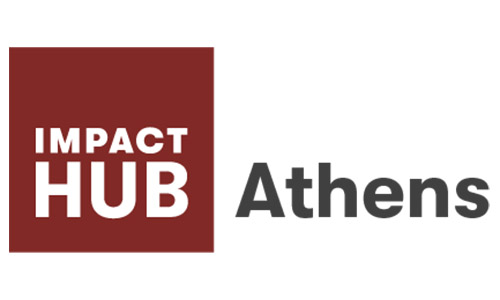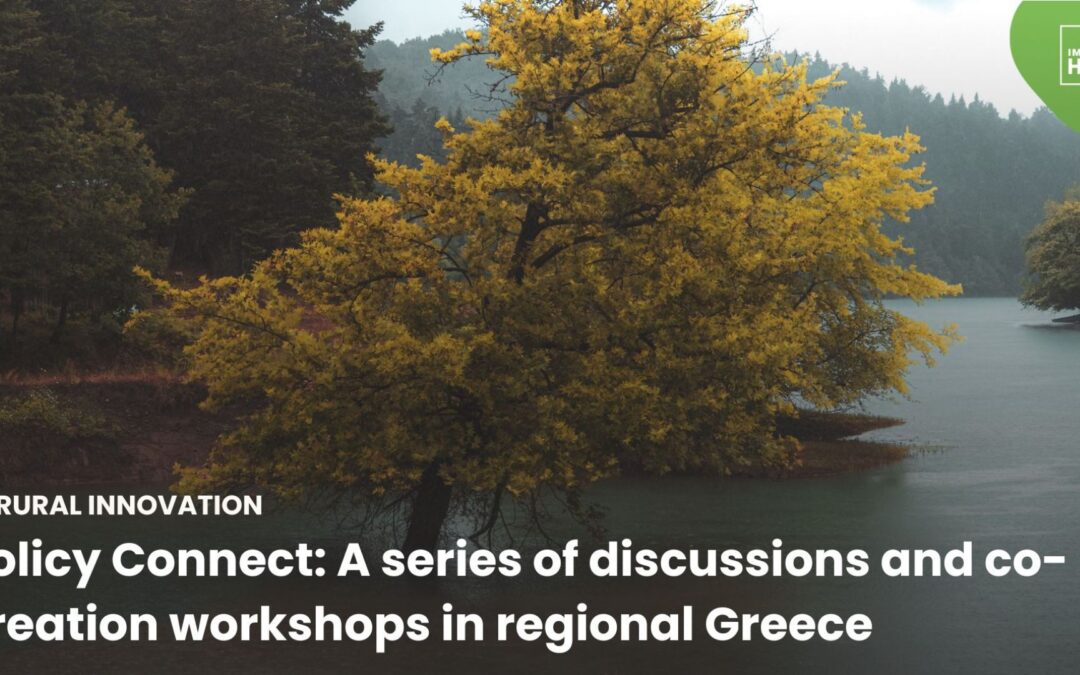According to the 11th Goal of Sustainable Development, the support of positive economic, social, and environmental links between urban, peri-urban, and rural areas is essential for cities to become inclusive, safe, resilient, and sustainable. It is also true that most sustainability innovations are adapted to the needs of urban areas, either not offered at all in rural areas or requiring a massive effort to be usable or effective (Zulauf, Wagner, 2021). At the same time, there is a need for an “ecosystemic” change to bring business support and development services closer to rural societies. Promoting entrepreneurship and self-employment as means for job creation, skill development, and providing opportunities for the unemployed and vulnerable individuals creates new opportunities for full participation in society and the economy in terms of sustainability and resilience.
This need becomes even more crucial, particularly when viewed through the lens of the climate crisis. It is important to share best practices and case tools, involve local partners, and empower communities from within through knowledge exchange and skill development for the establishment, operation, and growth of sustainable initiatives that consider both nature and people.
Impact Hub Athens and Google.org have joined forces to empower the entrepreneurial community in the Greek region through a collaborative initiative. Impact Hub Athens, as a partner, has introduced a comprehensive economic support program, committing funding of 150K to various entrepreneurial entities in 8 regions across Greece. These entities are focusing on developing programs specifically targeting environmental sustainability, including Rural Incubators and fellows in those various locations. The program, leveraging Impact Hub Athens’ decade of experience in social entrepreneurship, aims to expand the social economy ecosystem in the region.
A main objective of the program is to establish and sustain a network of entrepreneurial entities throughout Greece and to generate and implement sustainable solutions for the environment. At the same time, through this network, we aim to map challenges and opportunities and create a roadmap of systemic changes in order to actively empower the entrepreneurial ecosystem in our country.
Towards this end, Impact Hub Athens has designed and implemented a series of Policy Recommendations Focus Groups & Stakeholders Events for Empowering Entrepreneurship – Linking the social and environmental innovation ecosystem, focusing on joint proposal creation and commitment agreements (policy recommendations). The series of events includes six (6) Policy Recommendations Focus Groups in Athens and twenty-two (22) more, in six (6) regions of Greece, with the final implementation horizon set for April 2024.
The goal is to initiate an official dialogue among the different stakeholders of the ecosystem and to co-create proposals to strengthen and drive the community of social and environmental entrepreneurship in Greece. These proposals will be compiled in a larger document, which will be delivered to policy-making institutions and authorities in Greece and Europe.
The kick-off of the Rural Incubators Policy Workshops was held in January in Thessaly (Karditsa), Messinia (Kalamata), and Crete (Rethymnon) in collaboration with our local partners, Development Agency of Karditsa, ΕΤΑΠ, Phaos and Bizrupt, while more are coming in Epirus in collaboration with The High Mountains and Boulouki, West Makedonia with OENEF and Thrace with Lighthub.
With a high level of commitment from local stakeholders representing various communities in each region, the discussions led to interesting outcomes and knowledge sharing following a co-creation methodology specifically designed for the workshops, by the Impact Hub Athens team.
In Thessaly, Karditsa, the discussion primarily involved representatives from the agricultural sector. The focus of this dialogue centered around the specific challenges and opportunities faced by farmers and agricultural entrepreneurs in the region. One of the key highlights of the discussion was the need to provide entrepreneurial support to farmers. This support would involve offering guidance and resources to help farmers develop business plans, access financing, and navigate the complexities of running a successful agricultural enterprise. By equipping farmers with the necessary tools and knowledge, the aim was to enhance their entrepreneurial skills and increase their chances of success. Given the recent floods in the area, empowering the local economy by supporting farmers’ networks was also emphasized. By fostering connections and collaboration among farmers, they could share resources, knowledge, and best practices, ultimately strengthening their collective resilience. This cooperative approach would help farmers overcome challenges and collectively work towards the revitalization of the agricultural sector in Karditsa. Another important aspect discussed was the facilitation of access to skills training for farmers. By providing training programs and workshops focused on modern agricultural techniques, sustainable practices, and efficient resource management, farmers could enhance their productivity, reduce environmental impact, and improve the overall quality of their products. Furthermore, the participants highlighted the significance of fostering connections with local family businesses. By establishing partnerships and collaborations with other local enterprises, such as food processors or distributors, farmers could access new markets, increase their reach, and create a more integrated and sustainable local agricultural ecosystem. During the dialogue, there was also a vibrant conversation about the interest of foreign investors and customers in local agricultural products, particularly cotton. Participants recognized that this interest could serve as an incentive for farmers to adopt more sustainable practices. By meeting the demands of environmentally conscious consumers, farmers could not only increase their market opportunities but also contribute to the overall sustainability of the agricultural sector.
In Messinia, Kalamata, the focus of the discussion revolved around the community of social entrepreneurs representing diverse sectors such as tourism, agrofood, and agriculture. The participants recognized the significance of fostering an entrepreneurial culture within the region, which would contribute to its economic growth and development. One key aspect highlighted during the discussion was the need for training and networking opportunities for social entrepreneurs. By providing relevant skills development programs and facilitating connections among entrepreneurs, the aim was to enhance their knowledge, capabilities, and collaborations. These initiatives would enable social entrepreneurs to thrive and create sustainable businesses that contribute to the local economy. Additionally, the participants emphasized the importance of improving information dissemination and access to financing tools. Enhancing the flow of information about available resources, funding opportunities, and support programs would empower social entrepreneurs to make informed decisions and access the necessary financial means to start or grow their ventures. This access to financing tools would not only support the growth of individual businesses but also contribute to the overall economic ecosystem of the region. Another significant aspect discussed was the prevention of brain drain and the attraction of new talent to the area. By fostering an entrepreneurial culture, providing training opportunities, and improving access to resources, Messinia aimed to create an environment that would retain local talent and attract new innovative individuals to contribute to the region’s development. This approach would not only empower the local economy but also create a vibrant ecosystem of social entrepreneurs working towards sustainable and inclusive growth.
Finally, in a significant milestone, we successfully facilitated a collaborative dialogue in Chania, Crete, bringing together diverse stakeholders in the sustainable food sector. This inclusive gathering comprised representatives from large-scale sustainable food companies, individuals involved in smaller non-profit and for-profit organizations, as well as key figures holding institutional positions. During the insightful discussions, several key themes emerged. One crucial aspect highlighted was the pressing need for microfinancing mechanisms as a vital tool for seed funding. Such mechanisms would enable the sustainable development and capitalization of local assets, fostering a resilient and self-sufficient food system. The importance of networking and collaboration within the industry was also emphasized. Participants recognized the value of establishing connections with similar organizations and industries at both national and international levels. This collective effort would facilitate knowledge exchange, resource sharing, and the creation of innovative solutions to address shared challenges. Moreover, there was a strong emphasis on understanding and capitalizing on the emerging go green business trends, particularly in the realm of marketing, as well as the familiarization with contemporary technological tools such as digital platforms or AI.. Participants recognized the significance of effectively communicating sustainability initiatives and environmentally friendly practices to consumers, thereby fostering a greater demand for sustainable food products.
In conclusion, rural innovation and sustainable entrepreneurship hold immense potential for driving positive change in local communities. By fostering an entrepreneurial culture, providing training and networking opportunities, improving access to financing tools, and addressing brain drain, we can create vibrant and resilient economies in rural areas.
Let’s work together to unleash the power of rural innovation and sustainable entrepreneurship for a brighter future.
#RuralInnovation #SustainableEntrepreneurship



